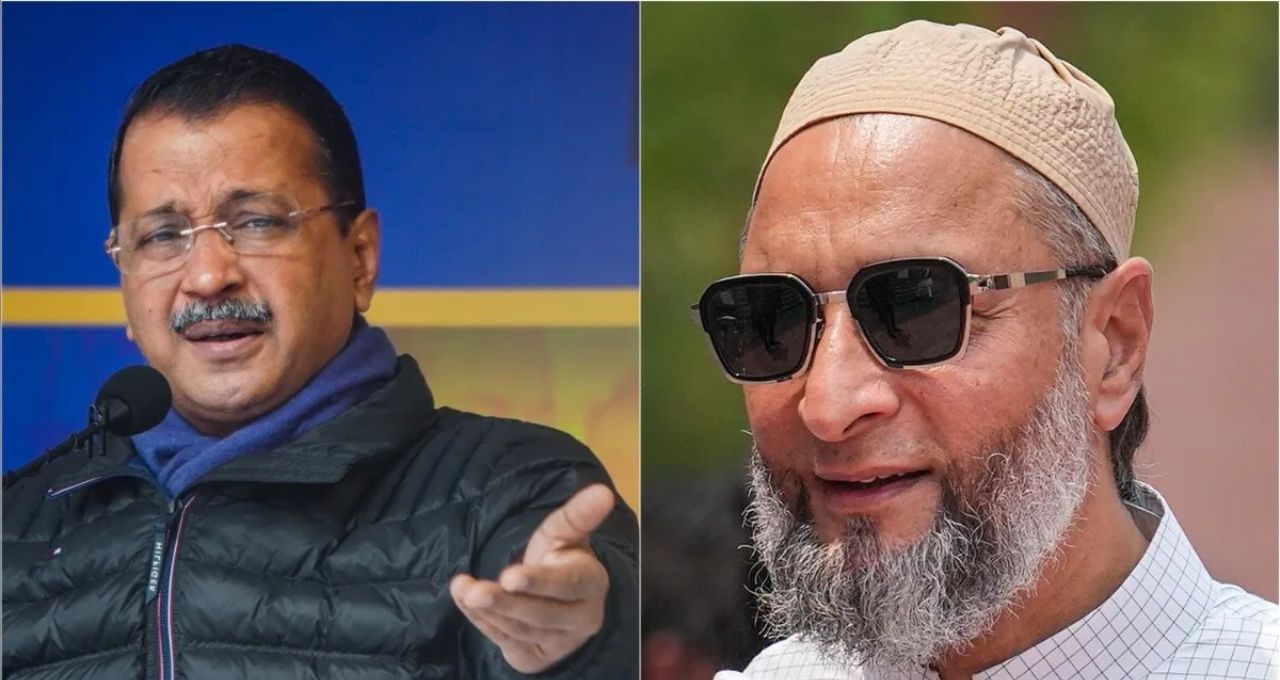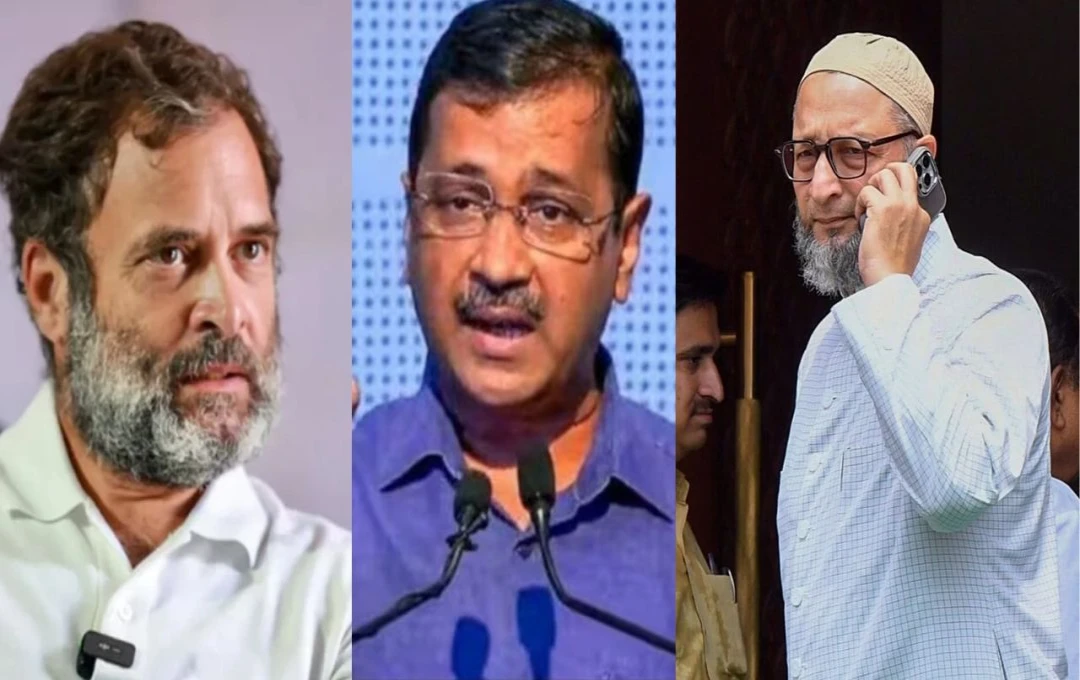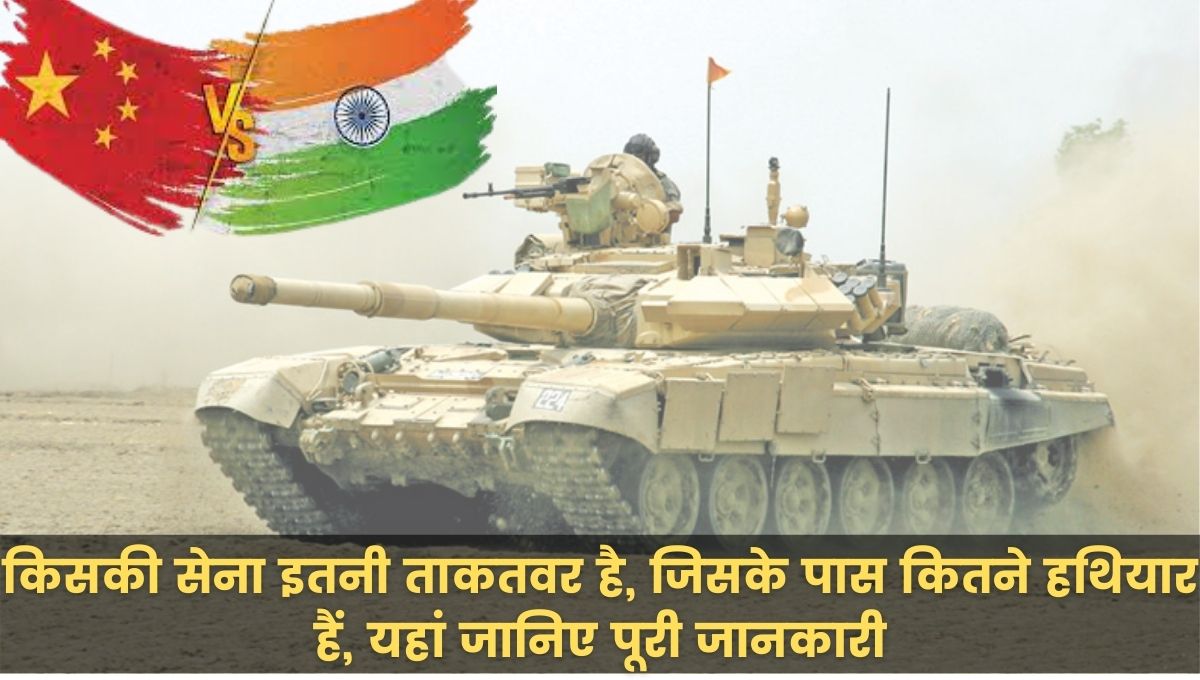Congress's Strategic Candidacies in Delhi Elections Hamper AAP's Prospects
In key constituencies like Badli, Sultanpur Majra, Babarpur, and Mustafabad, Congress fielded b candidates, thereby challenging the Aam Aadmi Party (AAP) significantly. Seelampur, with 57% Muslim voters, was another area of focus.
Delhi Election Result: The Bharatiya Janata Party (BJP) appears to be securing a significant victory in the Delhi Assembly elections. Trends are largely stable, and if these figures translate into final results, a BJP government in the capital is certain. The BJP's performance this election has been remarkable, exhibiting a 34% increase in vote share, while the Aam Aadmi Party (AAP) has suffered a considerable setback, experiencing an approximate 35% decrease in votes, severely impacting their chances of forming a government.
AIMIM and Congress Inroads into the Muslim Vote Bank

According to political analysts, the Congress and Asaduddin Owaisi's All India Majlis-e-Ittehadul Muslimeen (AIMIM) caused the most damage to the AAP. Both parties fielded b candidates in Muslim-majority constituencies, splitting the Muslim vote among three parties. This three-cornered and, in some cases, four-cornered contest directly benefited the BJP. While the Muslim vote was divided, Hindu voters largely voted en masse for the BJP.
Congress's Impact on AAP's Vote Bank
Several key constituencies, including Badli, Sultanpur Majra, Babarpur, and Mustafabad, have large populations of Dalits, Muslims, and migrant laborers. Congress fielded b candidates in these areas, creating difficulties for the AAP. In Seelampur, a northeast Delhi constituency dominated by Muslims (over 57% of the electorate), Congress strengthened its position. This seat was previously a Congress bhold but was won by AAP in 2015 and 2020. Congress's nomination of Abdul Rahman, a former AAP MLA who joined Congress shortly before the election, added intrigue to the contest.
AIMIM's Strong Foothold in Muslim-Majority Seats

In several Muslim-majority constituencies in Delhi, Congress and AIMIM candidates attempted to garner Muslim votes through emotional appeals. Congress invested significant effort in constituencies like Matia Mahal (60% Muslim voters), Ballimaran (50% Muslim voters), and Chandni Chowk (30% Muslim voters). Furthermore, Congress campaigned heavily in the Dalit-dominated constituencies of Seelampuri and Sultanpur Majra. AIMIM candidates also made emotional appeals to Muslim voters during campaigning, shifting some previously AAP-supporting Muslim voters towards AIMIM.
Congress Makes Inroads into the Slum Vote Bank
While slum dwellers have always played a significant role in AAP victories, Congress appealed to voters using the legacy of their late former Chief Minister, Sheila Dikshit. Congress leaders visited slum areas, reminding voters of development work and welfare schemes undertaken during Dikshit's tenure.

Congress highlighted the establishment of JJ colonies under their government and emphasized the continued appreciation of Sheila Dikshit among the Dalit community. This emotional appeal proved advantageous for Congress, impacting AAP's performance.
A Major Setback for Kejriwal
AAP's defeat is considered a significant blow to Arvind Kejriwal. Election trends and results clearly indicate a landslide victory for the BJP in Delhi, with Congress and AIMIM significantly impacting the AAP's vote bank.












